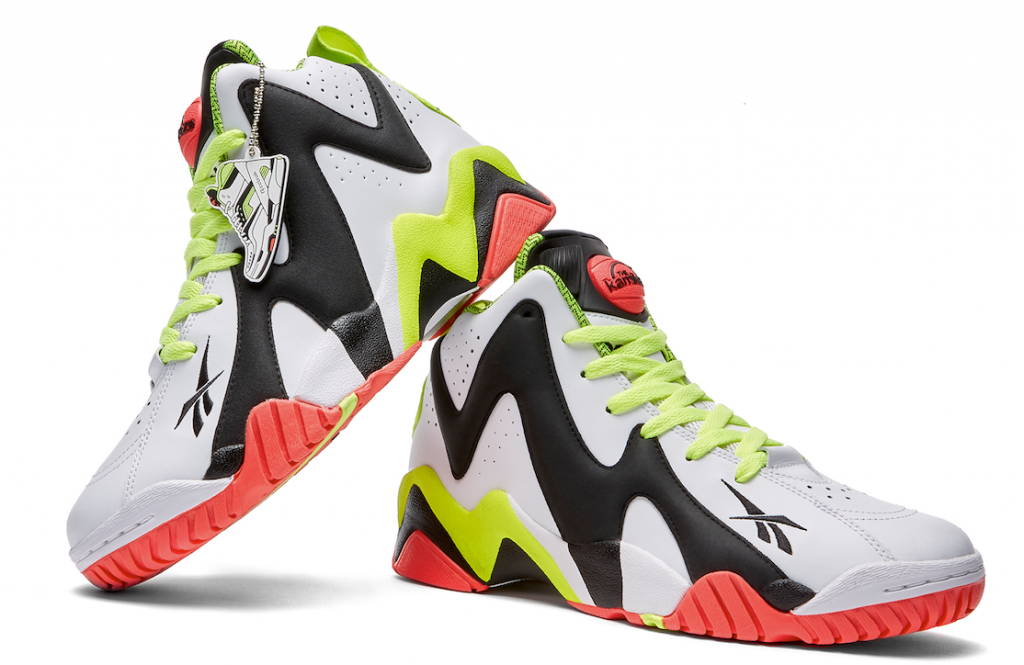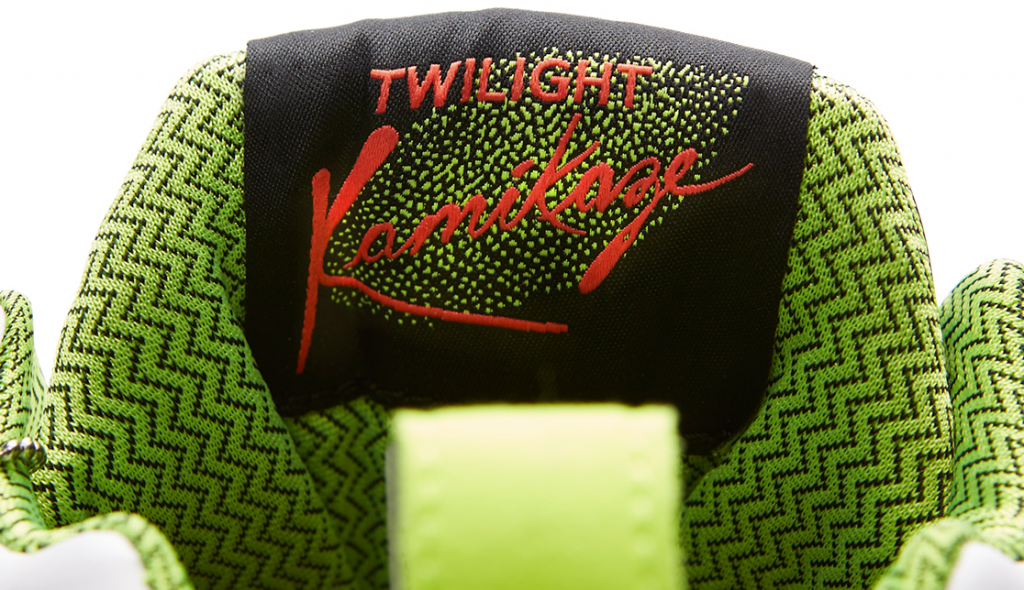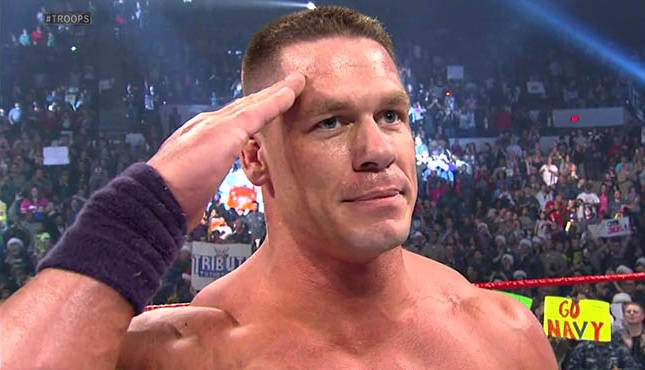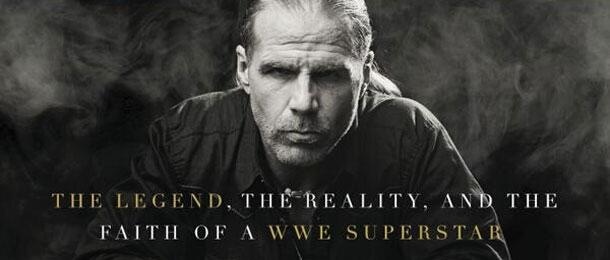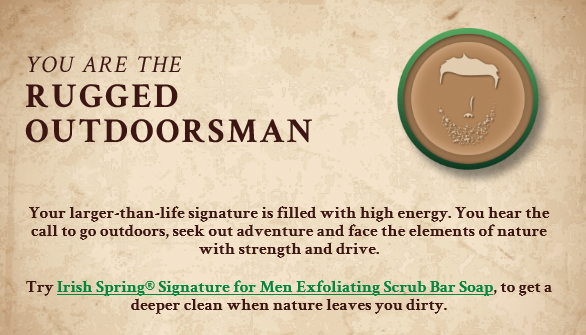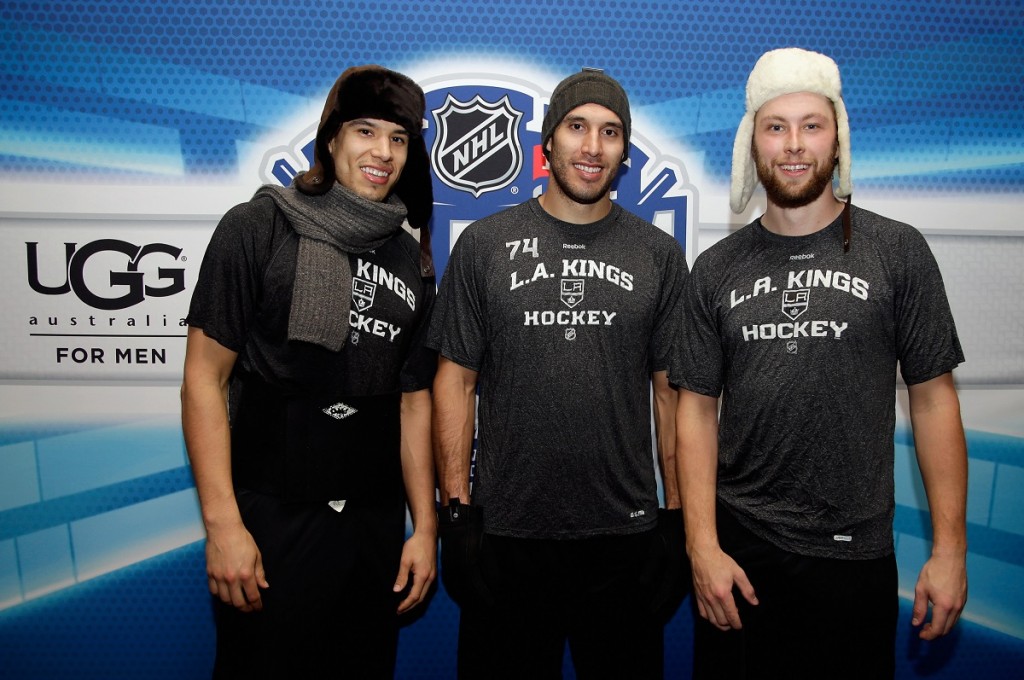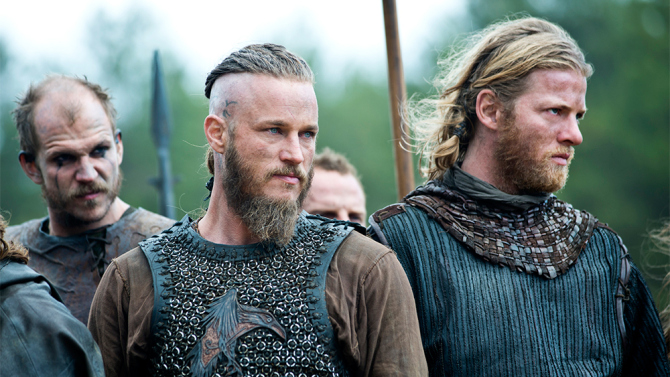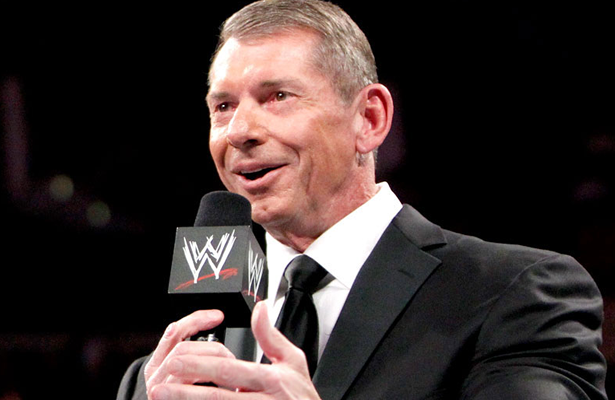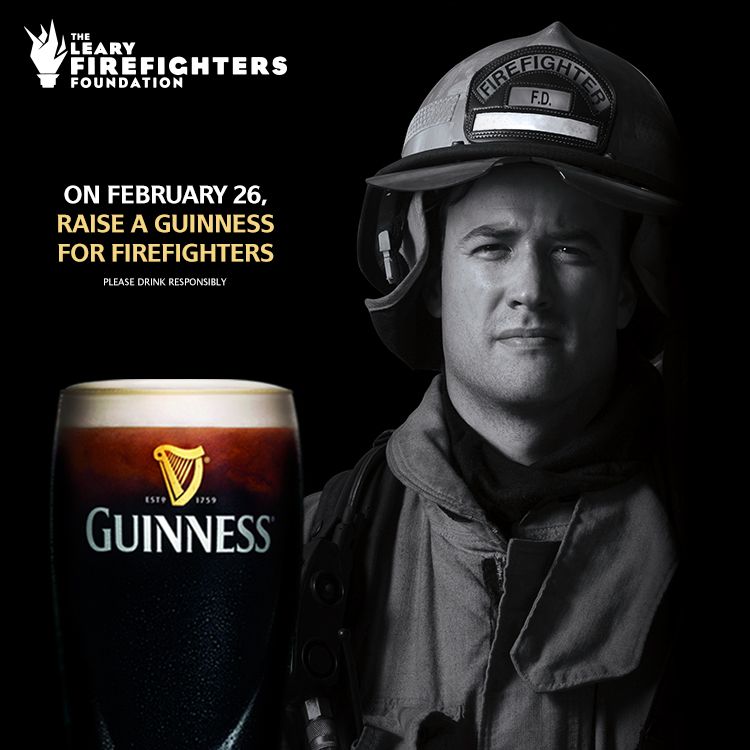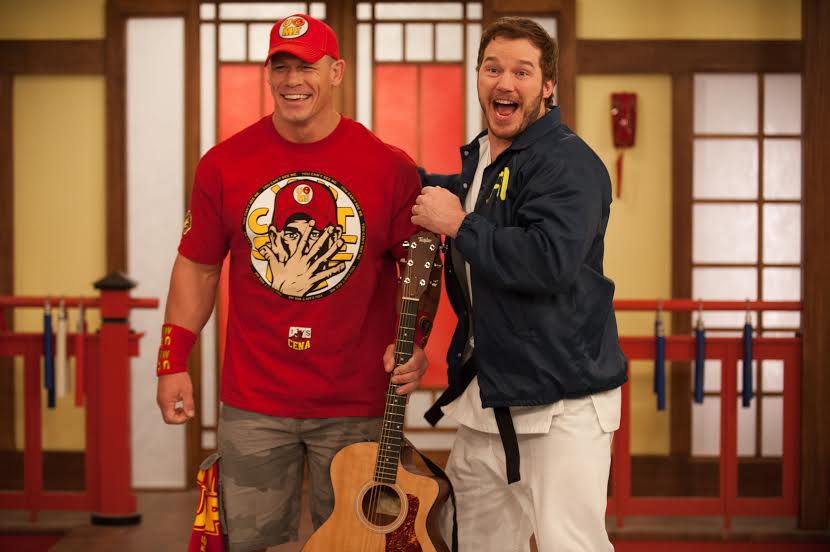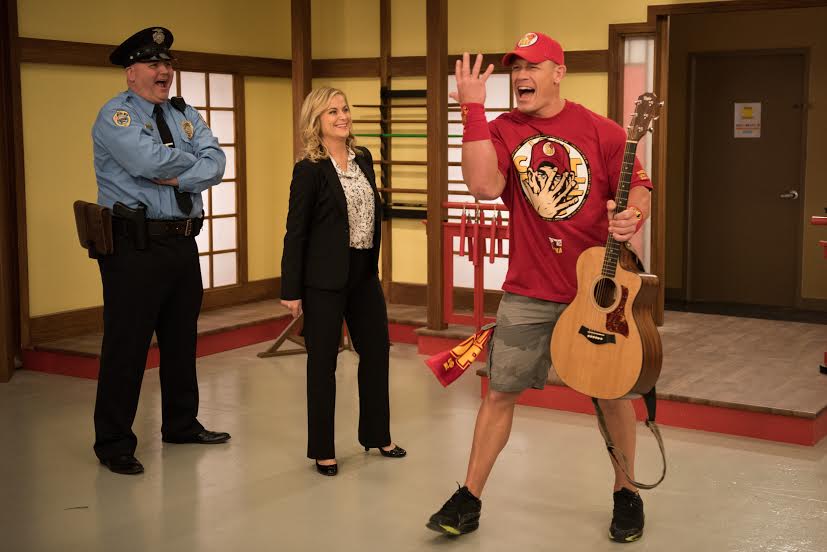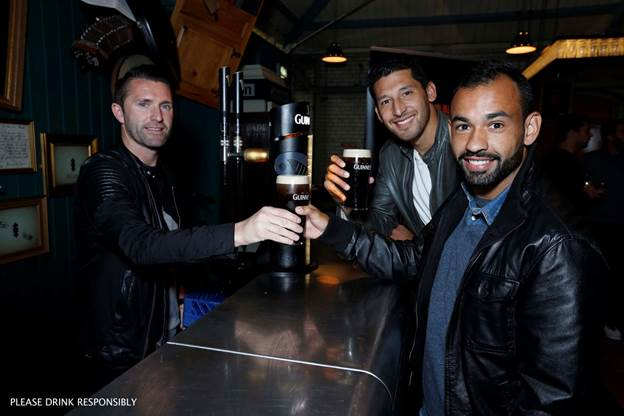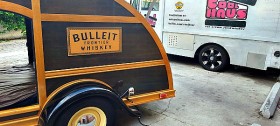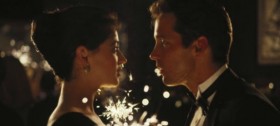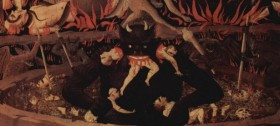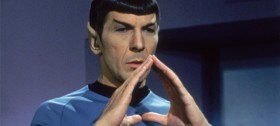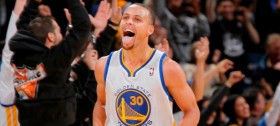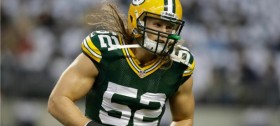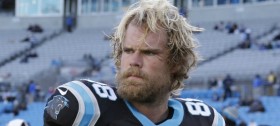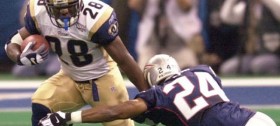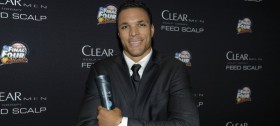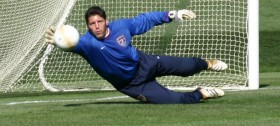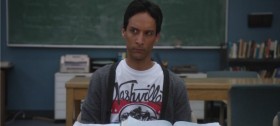
Reebok Classics Announces the Pump Kamikaze II, Dropping March 13th
Feb 27th

Help The WWE Superstars Spread Some Hope
WWE today announced the launch of Superstars for Hope, a fundraising campaign on Indiegogo, the world’s largest crowdfunding platform, to benefit Special Olympics and Lucile Packard Children’s Hospital Stanford in honor of Connor’s Cure. The announcement was made exclusively on Twitter by WWE Chief Brand Officer Stephanie McMahon, WWE Hall of Famer Hulk Hogan and WWE Superstar John Cena. To kick off Superstars for Hope, WWE and the San Francisco 49ers Foundation have each donated $25,000, the first in a series of community outreach initiatives in celebration of WrestleMania 31 at Levi’s Stadium in Santa Clara on Sunday, March 29.
Beginning today, supporters can donate at SuperstarsforHope.com and receive unique WWE merchandise, autographs, and once-in-a-lifetime experiences from WWE Superstars, Divas and Legends. Each week, WWE will add new exclusive experiences to the campaign, including:
· A tour of WWE’s state-of-the-art Performance Center in Orlando, Florida
· Backstage access to Monday Night Raw or SmackDown
· VIP package to WWE pay-per-view events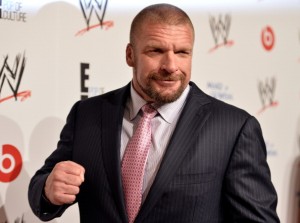
· Lunch with WWE Superstar Triple H® at the WWE Performance Center
· WWE World Heavyweight Championship title signed by WWE Chairman & CEO Vince McMahon, Stephanie McMahon and Triple H
· An ultimate WrestleMania 32 package
· Lunch with the cast of the hit E! reality show Total Divas
“WWE’s support of Special Olympics gives us a unique platform from which to reach, educate and welcome countless new fans and athletes to our movement,” said Janet Froetscher, CEO, Special Olympics. “The important work we do around the world to create communities of acceptance and respect for all will only be successful when the world heeds our call to Play Unified in order to Live Unified.”
“Every day at Lucile Packard Children’s Hospital Stanford, our doctors, staff, and researchers strive to ensure the best possible care for children with cancer,” said Christopher G. Dawes, president and CEO of Lucile Packard Children’s Hospital Stanford. “WWE has been a strong advocate of pediatric cancer research and we’re pleased to support the important mission of Connor’s Cure.”
“WWE is dedicated to using the power of our brand to give back to the community in as many ways as we can,” said Stephanie McMahon, WWE Chief Brand Officer. “I am proud that this year’s Superstars for Hope campaign will support two worthwhile causes, Special Olympics celebrating acceptance and inclusion, and Lucile Packard Children’s Hospital Stanford in honor of Connor’s Cure in an effort to find a cure for pediatric cancer.”
“The 49ers Foundation is proud to be partnering with WWE to further our commitment to making an impact on and off the field,” said John York, Chairman/Co-Owner of the San Francisco 49ers. “Special Olympics and Lucile Packard Children’s Hospital Stanford provide much needed resources for superstars in our community – athletes with intellectual disabilities and children fighting life-threatening and life-limiting illness. It is an honor to join with WWE to support them through the Superstars for Hope campaign.”
In support of Superstars for Hope, celebrities and athletes are serving as official social media ambassadors to help raise funds and awareness. Ambassadors include San Francisco 49ers quarterback Colin Kaepernick, journalist Joan Lunden, journalist and Yahoo! global news anchor Katie Couric, multi-platinum recording artist and actress Jordin Sparks and actor Kellan Lutz.
Fans can click here now through Tuesday, March 31 to participate and use the hashtag #STARS4HOPE when donating.
Feb 27th

WWE Superstar Shawn Michaels Talks About His New Book And Wrestling
In Wrestling for My Life, WWE superstar Shawn Michaels shares from his heart about the highs and lows of his life inside the WWE. Included are some never-before-shared stories and an intimate look into his career as well as stories of hunting, family, and faith.
With millions of fans, Michaels had adulation and all the attention he could ask for, but he discovered there was something more. When he became a committed Christian during his years in the WWE it had to affect everything. Michaels reveals what it is like to be a man of faith in this unusual world and shares insights for all of us.
You can win a copy of the book by following MANjr. on Twitter. Winners will be randomly selected. Here is Shawn sharing some thoughts on his book.
Your first book Heartbreak & Triumph: The Shawn Michaels Story came out a decade ago and was a bestseller. Why did you decide to write another autobiography, and how is this one different?
Shawn Michaels: Writing Heartbreak & Triumph was such a rewarding experience. Looking back on my wrestling career and describing my climb the top of an extremely competitive sport helped me better understand who I was, where I’d been, and how I fit into the legacy of the WWE. Plus, I got a kick out of knowing that the details and explanations I offered would mean a lot to fans out there, many of whom have followed my career so loyally for so long.
My new book, Wrestling for My Life, raises the stakes a bit, I think. While Heartbreak & Triumph was a mix of professional and personal reflections, Wrestling for My Life is extremely personal — almost wholly so. That doesn’t mean I don’t talk about wrestling. After all, it’s a big part of who I am, and it always will be. I just talk about my career in the context of this incredibly personal thing: my faith. The book focuses on my life as a Christian — what that has meant for me and my family, and how it even happened in the first place.
Why did you feel compelled to write about your faith?
SM: For so much of my career, I was known — loved and hated — for being crude, arrogant, and offensive. It was part of the character I played, sure. But the bad guy I portrayed started swallowing up the real me, too.
Becoming a Christian gave me the second chance I never dreamed was possible. I want to talk about that. If the Creator of the universe loves and wants to save a punk like I was, what does that mean — not just for me, but for everyone else, too? I want to share that kind of life-changing story with people.
Yes , you write that as a pro wrestler, you liked being loved, but you may have liked being hated even more. Why?
SM: I enjoyed making people react. I really fed off of the energy it created. Of course, I came to realize that as much as some fans hated me, I hated myself more.
When did you realize that you actually hated yourself that you wanted your life to change?
SM: I hit rock bottom. I was married to the love of my life, Rebecca, and our son Cameron had just turned two. Our Friday night ritual was pizza and chocolate chip cookies, and we all loved it. I had a habit of pills — years of wrestling had beaten up my body, so excuses to take them were easy to find. I was really out of it one Friday night, and Cameron noticed. He crawled on top of me and said, “Daddy’s tired.”
I go into more detail in the book. Basically, I was in a fog — and it hit me that my son was starting to notice. I was messing up his life now — not just mine. I broke down that night, disgusted with myself, and just prayed. I asked God to change me.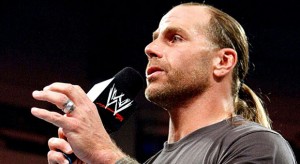
Your wife Rebecca has been quite a force in your life, hasn’t she?
ASM: Rebecca prayed for me loyally and constantly, while remaining supportive and nonjudgmental. She never nagged me about God. It’s not that she didn’t want me to change. She definitely did. She just took her concerns to God. Out of the two of us, she got serious about her faith first — started attending a Bible study, and just exuded peace. I’m eternally grateful for her.
You grew up going to church, but you say you didn’t become a Christian until 2002. Can you explain what you mean?
SM: Yes, I grew up Catholic. I was even an altar boy, which will probably hard for some of my fans to imagine. As a grown man, I did not live a Christian life. I didn’t have a relationship with Jesus.
I had what I can only describe as a spiritual experience while I was hunting in the Texas Hill Country. I knew I needed something else in my life — something big. For me, that was Jesus. Once it really hit me that he gave his life for me, I wanted to follow him in every way I could. It was a revelation. And it was liberating. All of the stuff that used to matter — fame, money, excess — just didn’t appeal to me at all anymore. I became focused on my family and trying to please God in any way I could.
What appealed to you most about Jesus?
SM: Jesus was tough, man. I mean that physically, of course, but also emotionally and mentally. At first, I was stunned by Jesus’s physical strength — all that he endured. As I grew in my faith, I became more and more awestruck by his emotional and mental toughness, which came across in the compassion and forgiveness he so generously gave others who really let him down. Even though I know I can’t ever live up to the way Jesus lived, he’s my goal.
You’ve retired from wrestling twice. Can you talk about the decision to go back?
SM: The first time I retired in 1998, I was forced to stop wrestling because of injury. Vince asked me to come back in 2002, first just part-time. My family supported my decision to go back — that was key. And I prayed about it, trusting that God would show me what I was supposed to do. It became pretty clear to me that I was supposed to start wrestling again. The next year, I went back to wrestling full-time, which I continued to do until 2010.
At first, I was really worried that I wouldn’t be as strong physically as I’d once been. I didn’t want to return a weaker wrestler. Those concerns soon disappeared. Today, I genuinely feel that I can argue I was a better wrestler and performer in the second part of my career than the first.
What was it like to return to wrestling after becoming a Christian?
SM: Well, I wasn’t a Bible-thumping, in-your-face kind of guy about it. But I knew they’d heard that I’d become a Christian, and I wanted them to see firsthand how my faith had changed me.
It was an incredible opportunity to show how God can make a life better in a place where he wasn’t routinely discussed. Here were all these guys with vastly different backgrounds who wouldn’t have necessarily sought God out, but could discover him, ask me questions without feeling weird, and learn more about what having God in your life means — all backstage at a WWE match. Pretty awesome.
I also hoped viewers and fans would notice and wonder why I was different. It provided an incredible opportunity to show millions of people what God can do.
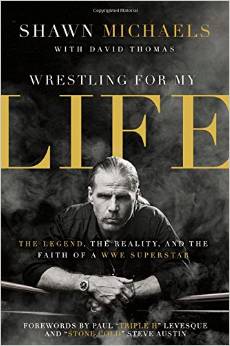 Did you ever feel torn between trying to please the wrestling community and following your faith?
Did you ever feel torn between trying to please the wrestling community and following your faith?
SM: At first, I was really intimidated about making my two separate worlds coexist.
When I returned to wrestling for the second time in 2002 — the same year I became a Christian — the environment was very different than it’d been in earlier years. Everyone at WWE was so accepting of my Christianity. I also noticed that the locker room culture in particular had changed. The guys felt freer — they shared more and admitted to feeling insecure or confused. Picture this: a bunch of wrestlers getting ready to head to the ring, gathering together and praying first. It happened, and I’ll cherish the memories of it forever.
Vince McMahon and his family were incredibly supportive of me. I did sometimes find it hard to reconcile my public persona with the expectations of fans and other Christians — but that wasn’t Vince’s fault. That was something I had to work through, as a new Christian, on my own. One situation in particular comes to mind. I said the word “damn” in a promo for an upcoming match, all as part of a storyline I was working on with my best friend Hunter — Triple H. I thought that since I was acting — just playing a part — it’d be no big deal. But a lot of people were really disappointed in me.
My dear friend Keith Parker pulled me aside after our Bible study once the spots had run and asked me about my decision. At first, Keith’s questions kind of rubbed me the wrong way. But later that evening, I realized he was so right. By making a compromise — even one that seemed pretty insignificant like uttering a single word — I was weakening my ability to share my story.
You talk a lot about Vince McMahon in a book about spirituality — that may surprise some people.
SM: Vince has always been incredibly loyal to me. He’s stuck by me through good times and bad — when I was actually a liability. He’s really nothing like the way he portrays himself on TV. I’m honored to know him. I do still love giving him a hard time, though — just because I’m a Christian now doesn’t mean I don’t like having a little fun at Vince’s expense every now and then. (Laughs.)
You also revisit famous and infamous episodes in your wrestling career in light of your newfound faith. What was that process like for you?
SM: Yeah, I felt like it was one of the most important things for the book to accomplish: looking at my past in light of my faith. The Montreal Screwjob is a perfect example. It’s still the biggest controversy in the history of pro wrestling. In 1997, my rival Bret Hart was set to lose his final match in his home country of Canada. He’d made it very clear that he would not give up his belt to me, but Vince decided behind the scenes that that was exactly what would happen. So, Bret lost to me in Canada, and was humiliated in front of his countrymen. Understandably, he was furious, and up until relatively recently, Vince had taken just about all of the heat for what happened.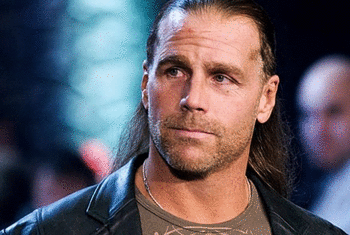
The thing is, I knew all about it. I was in on what happened. After I became a Christian, I gave an interview, and I could not lie about it anymore. So I came clean, and admitted my role.
At the time, Bret and I were not on speaking terms. We hadn’t been for years. Our path to forgiveness and reconciliation was long and difficult. Bret has described our ultimate peace as “cathartic,” and I think that’s a perfect way to put it. I also don’t believe it would have happened with God.
You talk a lot about forgiveness in the book.
SM: Yes. I like to say, “Forgiveness brings freedom.” I think there are two types of freedom. The first kind is the kind that says, “Okay, I have freewill. I’m going to do whatever I want.” That’s the kind of freedom that you have to give up in order to get the second kind of freedom, which comes only from God. It’s freedom from guilt and shame, and in return, you have a gratitude and peace that’s indescribable. It probably goes without saying, but just in case: I think the second type of freedom is way better than the first. And I’d definitely know.
You’re very candid about all kinds of difficulties you’ve experienced, both before you became a Christian and afterward. Some of your troubles included financial stress. Why did you feel like that was important to include that?
SM: My family has been incredibly blessed, financially and otherwise. But yes, we did have some trying times with an investment, and it took two years for our home in San Antonio sell. That was tough. I wanted to address it specifically because I think it’s important to acknowledge that once you start following God, your life doesn’t instantly become trouble-free.
The stressful times we have are reminders to trust God — even when it’s so tempting to take matters into your own hands.
You’ve also been really successful cohosting a hunting show on the Outdoor Channel, right? Why hunting?
SM: Yes, along with my great friend Keith Mark, I have cohosted MacMillan River Adventures for the past four years. I enjoy that show so much — it’s hard work, the extent of which I don’t think I completely realized when I signed on. (Laughs.) When I’m outdoors, I feel close to God.
Wrestling for My Life is a personal story, but you also make some observations about contemporary society’s expectations of men. Can you talk about that?
SM: I worry that as so many men chase what culture says is “cool” and expected today, they’ve abandoned virtues that really matter, like grace, forgiveness, character, and integrity. In fact, I think that men who embody those virtues are often publicly mocked. Our society needs more men who will stand up and be warriors of strength and grace — no matter which way the wind is blowing.
What are your primary goals these days?
SM: I’m in the process of continually being changed for the better. Becoming a Christian gave me a confidence I’d never experienced before — it’s also given me an overwhelming peace. I don’t need to be the center of attention anymore. I don’t need to be relevant. I am working to be the best husband and father I can. I’m constantly pursuing being transformed into the man God wants me to be.
Feb 24th

Find Your Signature Smell
Committed to keeping men feeling fresh, clean and confident, Irish Spring® introduces Irish Spring Signature for Men — a new line of body washes and bar soaps specially-crafted to combine the fresh, distinctive fragrances of Irish Spring® with authentic ingredients to help guys go out and make their mark.
A signature says a lot about a guy, from their personality to their style. To reinforce this Irish Spring®, in partnership with an expert graphologist at the Graphology Consulting Group, created an interactive tool to analyze and showcase guys’ personalities based on traits and flares in their signatures. Curious lads can give it a try at IrishSpring.com and enter for a chance to win a buddy trip to see their favorite football player s get drafted in Chicago.
s get drafted in Chicago.
“Irish Spring® has over forty years of heritage designing products specifically for men,” says Bill Van De Graaf, Vice President and General Manager, U.S. Personal Care, Colgate-Palmolive. “Irish Spring® Signature™ for Men combines the notable scents of Irish Spring® with other product benefits, including exfoliating and moisturizing formulas.”
The new product line includes the Irish Spring® Signature™ for Men Hydrating Body Wash, formulated with authentic shea butter extract and a moisturizing technology2 that effectively delivers hydration to the skin after just one use. The line also features Irish Spring® Signature™ for Men Hydrating Bar Soap, 3-IN-1 Body Wash and Exfoliating Scrub Bar Soap.
To learn more about the Irish Spring® Signature™ for Men products and to uncover what your signature says about you, visit IrishSpring.com and share your experience with your mates using hashtag #IrishSpringSignature.
Here is what my signature said about me. What will yours say about you?
Feb 24th

LA Kings & San Jose Sharks’ First Look At Treadlite By UGG
This past week in a first of its kind partnership, UGG for Men partnered with the NHL on a VIP Gifting Lounge ahead of the 2015 NHL Coors Light Stadium Series Game at Levi’s Stadium in Santa Clara, CA. Players from both the LA Kings and the San Jose Sharks were given an advanced look of the Treadlite by UGG collection, a brand new lightweight but durable collection of casual footwear launching this month.
Notable players such as LA Kings Stanley Cup Champions Captain Dustin Brown, Drew Doughty, Marian Gaborik and Anze Kopitar took a moment to grab a stylish new pair, while checking out the innovative and flexible R-MAT technology of the Treadlite by UGG collection.
The San Jose Sharks’ Right Wing Brent Burns immediately gravitated towards the “Freamon” chukka style in bright red, while Tyler Kennedy, Melker Karlsson, Anti Niemi, and Joe Thornton all went with a more low profile black suede “Freamon” or grey canvas “Conley” slip-on to complement their off-ice style.
The debut collection features an extremely lightweight and durable outsole that leverages proprietary technology and offers increased cushioning, traction and flexibility. The innovation is helping UGG to redefine the “comfort casuals” category by infusing it with superior, lightweight technology. Treadlite by UGG™ will be available in men’s footwear at UGG Australia concept stores nationwide and on www.uggaustralia.com beginning this month.
Feb 23rd

Vikings – New Clips From “The Wanderer”
Check out a sneak peak from this upcoming “VIKINGS” episode on The History Channel. It is from “The Wanderer” that airs this week, Thursday, February 26 at 10 p.m.
Lagertha & Athelstan help to establish the Viking settlement in Wessex. Harbard, a mysterious wanderer, arrives in Kattegat, realizing the forewarned dreams of Aslaug, Siggy and Helga.
Feb 23rd

Muscle & Fitness Magazine Highlights Vince McMahon’s Career
Muscle & Fitness Magazine is featuring WWE Chairman and CEO, Vince McMahon. Vince is a pioneer in the television and entertainment business, most recently changing the television landscape by launching WWE Network, the first 24/7 live streaming network which has its first anniversary next week. With more than 1 million subscribers in only 11 months, WWE Network is the fastest growing digital subscription service.
As he nears his 70th birthday, Vince’s success can be attributed to his insatiable work ethic which is seen not only in his evolution of the WWE brand over the past 30 years, but is evident in his commitment to health and fitness. The results in both arenas speak for themselves.
Feb 20th

Guinness and Brad Paisley Want to Raise Funds for Firefighters Nationwide
Guinness USA continues its quest to support local firefighters across the country by trying to raise $1 million by St. Patrick’s Day 2015. In year three of its partnership with The Leary Firefighters Foundation (LFF), the Guinness brand ups the ante with its fundraising initiative by releasing a series of limited-edition, firefighter inspired t-shirts, one of which is designed in collaboration with country music superstar Brad Paisley, as a tribute to firefighters everywhere.
The Guinness St. Patrick’s Day initiative is to inspire bolder choices and celebrate those of great character and heroism who want to be and do more – qualities firefighters showcase each and every day. Throughout this year’s initiative, Guinness has also been raising a pint responsibly with local community events in honor of those who make great contributions to their communities – such as community leaders, military personnel, EMS workers, and of course, firefighters.
Patrons of legal drinking age are invited to celebrate National Raise Your Glass Day on Thursday, Feb. 26, by sharing a photo of their Guinness pint on Twitter, tagging @GuinnessUS, or post it on the Guinness US Facebook page. In addition to the Guinness iconic stout, Guinness® BlondeTM American Lager is perfect for those who prefer a lager but still want to raise a pint of Guinness for a good cause. For each photo posted, Guinness will donate $1 (up to $100,000) towards its fundraising effort in support of firefighters. From servicemen to firefighters to local volunteers, everyone has the potential to do more.
This year, the Guinness brand is also teaming up with Paisley to add his own spin to one of the firefighter-inspired t-shirts available for purchase with all net proceeds benefiting The LFF. Paisley comes from a family of firefighters including his father and brother-in-law who have loyally served their communities. With strong roots in the firefighter community and a long history of supporting these men and women, Paisley makes a perfect addition to the Guinness brand’s St. Patrick’s Day 2015 fundraising initiative.
“My father was a volunteer firefighter and showed me at an early age the sacrifices made every day by firefighters and how important what they do is to their communities,” said Paisley, who offered artistic input on one t-shirt’s design. “I’m so excited to be a part of the Guinness initiative knowing their work with The LFF has such an impact on the safety, effectiveness and overall lives of firefighters.”
From now until St. Patrick’s Day, t-shirts will be available for a $20 donation amount through more than 1,700 in-bar events held across the country and at GuinnessGivesBack.com – the online hub for all philanthropic efforts surrounding the Guinness brand’s commitment to local firefighters. All net proceeds raised will go towards The LFF to provide the much needed funding and resources for fire departments nationwide to receive equipment, technology and training necessary for the continued health and well-being of firefighters.
the country and at GuinnessGivesBack.com – the online hub for all philanthropic efforts surrounding the Guinness brand’s commitment to local firefighters. All net proceeds raised will go towards The LFF to provide the much needed funding and resources for fire departments nationwide to receive equipment, technology and training necessary for the continued health and well-being of firefighters.
“We’re thrilled to be partnering with Guinness for the third consecutive year to support local firefighters across the country,” said Denis Leary, founder of The Leary Firefighters Foundation. “The Guinness brand’s commitment to honoring these men and women who go above and beyond to help their communities has been fantastic. With the help of partners like Guinness, the LFF has been able to implement initiatives such as a First Responder leadership development program for fire departments in Boston, New York and Worcester, MA as well as donating more than $260,000 worth of fire and safety equipment to the Detroit Fire Department. We look forward to accomplishing even more this year.”
To learn more about National Raise Your Glass Day and the Guinness brand’s dedication to firefighters, make a donation, or to purchase a limited-edition t-shirt, visit GuinnessGivesBack.com.
Guinness reminds everyone raising a glass in support of firefighters and all of the men and women who do more for our communities every day, to please do so responsibly.
Feb 20th

Watch John Cena on Tonight’s Parks and Recreation
Don’t miss WWE Superstar John Cena’s guest appearance on NBC’s award-winning show Parks and Recreation tonight at 8/7 C. John pays a visit to Pawnee where he meets up with Amy Poehler’s Leslie Knope in one of the hit series’ final episodes.
Parks and Recreation, now in its seventh and final season, is a production of Deedle-Dee Productions, Fremulon, 3 Arts Entertainment and Universal Television. Greg Daniels, Michael Schur, Howard Klein, David Miner, Morgan Sackett and Dean Holland serve as executive producers for the series. Parks and Recreation has been Emmy Award nominated and has won the Television Critics Association Award for best comedy, AFI Award, American Comedy Award and the highly prestigious Peabody Award.
Feb 17th

LA Galaxy Visit Guinness Brewery
This weekend, members of the LA Galaxy traded in their soccer cleats for a pint glass during a visit to St. James’s Gate (the Guinness brewery) in Dublin, Ireland. The LA Galaxy is continuing their preseason with an eleven day European tour including training sessions in Dublin.
A few members received a tour of the Guinness brewery and learn how to pour the perfect pint of Guinness.
Feb 15th
